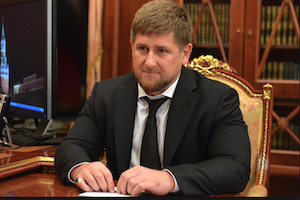Kadyrov's Intensifying conflict with Gazprom
By Huseyn Aliyev
April 3, 2019, the CACI Analyst
On December 20, 2018, Grozny city court ruled that the regional branch of Gazprom, Mezhregiongaz, should write off most of the republic’s gas debt. The court’s unprecedented ruling has caused four other indebted federal Russian regions to file similar appeals to their regional courts. The Chechen Prosecutor’s Office explained that it filed the appeal to the court due to concern over the threat of popular protests. Chechnya’s leader Ramzan Kadyrov insisted that Chechnya’s gas debts are due to Gazprom’s long-term mismanagement and miscalculations. While the Federal Attorney Office is currently investigating the issue, neither Kadyrov nor Gazprom have made any concessions. Since the start of scandal, the Kremlin has kept its distance from both sides.
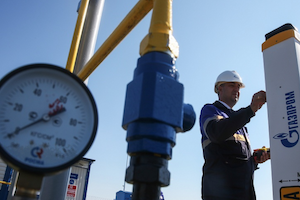
Ingushetia's Land Dispute Sparks Civil Awakening
By Neil Hauer
January 17, 2019, the CACI Analyst
The ongoing dispute over the transfer of 10 percent of Ingushetia’s territory to Chechnya shows few signs of calming. Regional authorities, including the heads of both republics, have attempted to both assuage and intimidate the incensed Ingush population with little success. The current redrawing of regional borders, unprecedented in the post-Soviet period, threatens to aggravate similar grievances across the region, while raising questions about the sustainability of its current political structure. Ramzan Kadyrov’s willingness to continue expanding his influence at the cost of his neighbors also serves as an ominous portent for regional stability.
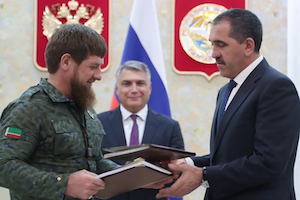
Land Swap With Chechnya Causes Mass Protests in Ingushetia
By Emil A. Souleimanov and Huseyn Aliyev
December 20, 2018, the CACI Analyst
On September 26, the heads of Ingushetia and Chechnya, Yunus-Bek Yevkurov and Ramzan Kadyrov, signed an agreement on a proposed land swap between the two Northeast Caucasian republics. While the Chechen public welcomed the plan, which was kept secret until it was signed, the agreement sparked unprecedented protests in Ingushetia. Several thousand Ingush protesters in the republic’s capital Magas have found sympathy from both Ingush siloviki and the public in their resistance to the deal. With bottom-up opposition to the land swap spreading in Ingushetia, this “Maidan” in Russia’s geographically and demographically smallest republic may have far-reaching implications not only for Ingushetia and Chechnya, but also for the rest of the Russian Federation.
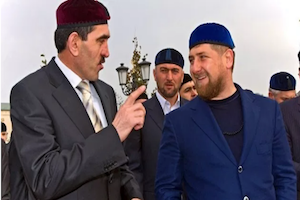
Discontent with Kadyrov Leads to Increased Violence in Chechnya
By Emil A. Souleimanov and Huseyn Aliyev
October 23, 2018, the CACI Analyst
On August 20, a series of attacks by teenagers against policemen took place in Chechnya’s cities of Grozny and Shali. The country’s strongman Ramzan Kadyrov quickly blamed “external actors” seeking to pitch local security enforcement, siloviki, against teenagers, while decrying the inability of the attackers’ parents to oversee their sons. Yet realities on the ground appears to be different. In fact, large part of the Chechen population hold enormous grievances caused by the impunity of local siloviki, particularly kadyrovtsy, and the republican authorities in general. The threat of punishment against the relatives of insurgents and their (prospective) supporters has since the early 2000s stemmed the local insurgency. Yet from time to time, grievances condensed in the Chechen population explode in spontaneous acts of nearly-suicidal violence against republican law enforcement.
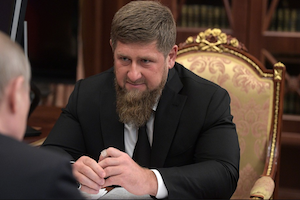
Families of ISIS Fighters Return to North Caucasus
By Huseyn Aliyev
May 23, 2018, the CACI Analyst
Since December 2017, following the military defeat of the terrorist organization known as the Islamic State in Iraq and Syria (ISIS), several hundred Russian citizens, mostly from the North Caucasian republics of Chechnya, Dagestan and Ingushetia, have been brought back to Russia from Syria and Iraq. The returnees are families of ISIS fighters from the North Caucasus. So far, authorities have detained and prosecuted many returnees upon their return to the North Caucasus. The Chechen leader Ramzan Kadyrov has masterminded the return of North Caucasus nationals from the Middle East, using the opportunity to boost his image as a regional leader.
